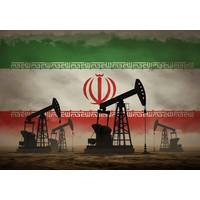Brent Steady at $59, Saudis Say Demand Up
Saudi Arabia's oil minister says markets are calm; Fed may not rush to raise interest rates.
Brent crude held steady around $59 a barrel on Wednesday as Saudi Arabia's oil minister said oil demand is growing and markets are calm.
Oil prices crashed by 60 percent between June and January to a post-2009 low near $45 a barrel but have since recovered.
"Markets are calm now ... demand is growing," said minister Ali al-Naimi, the driving force behind OPEC's shift in policy at its November meeting, when the group decided not to cut output to support prices but instead to fight for market share.
Brent has been helped by better-than-expected Chinese factory data, the Federal Reserve's flexible stance on U.S. interest rates and the euro zone's approval of reforms proposed by Greece.
But U.S. crude was weaker after settling lower for the fifth consecutive session on Tuesday on a bigger-than-anticipated crude stock build-up.
Brent had fallen 10 cents to $58.56 a barrel by 0945 GMT, while U.S. crude futures fell 30 cents to $48.98 a barrel.
China's factory sector showed marginal expansion, according to the flash HSBC/Markit Purchasing Managers' Index. It inched to a four-month high of 50.1 in February, just above the 50 level that separates growth in activity from contraction. A Reuters poll of economists had forecast a reading of 49.5.
"That's good news (as it means) potential oil demand, but I think the market needs to see more stable and concrete demand from China," said Yusuke Seta, a commodity sales manager at Newedge Japan.
The same Chinese survey showed new export orders from the world's second-largest oil consumer shrank at their fastest rate in 20 months.
Oil prices drew support from Fed Chair Janet Yellen's suggestion that the U.S. central bank was preparing to consider raising interest rates "on a meeting-by-meeting basis". Some investors took that to mean rates may start rising later than June, the month on which markets had been focusing.
Still, concern about excess oil supplies weighed on the market, limiting the impact of positive macroeconomic news.
U.S. crude inventories rose by 8.9 million barrels last week as refineries cut output, versus an expected 4 million barrels, data from industry group the American Petroleum Institute showed on Tuesday.
Meanwhile, Libya has resumed pumping crude from the Sarir and Messla oilfields at a rate of around 40,000 barrels per day to the port at Hariga after power was restored.
By Alexis Akwagyiram







